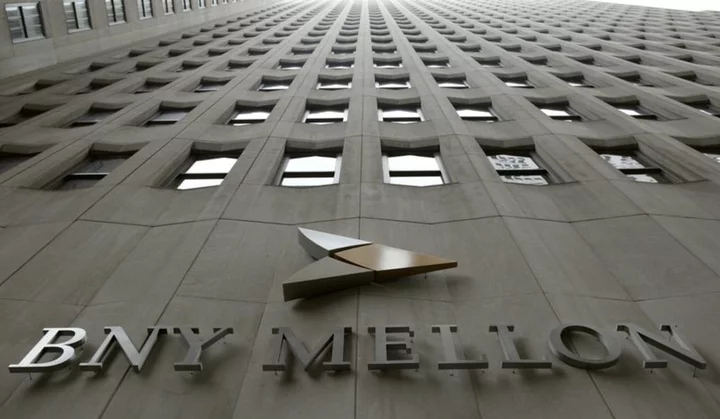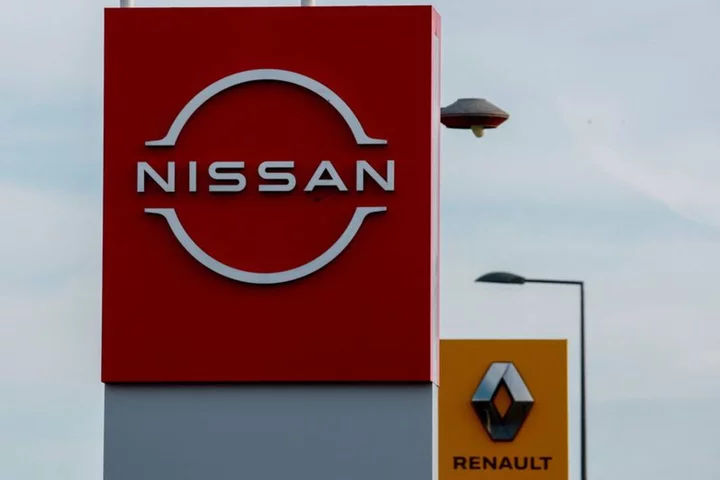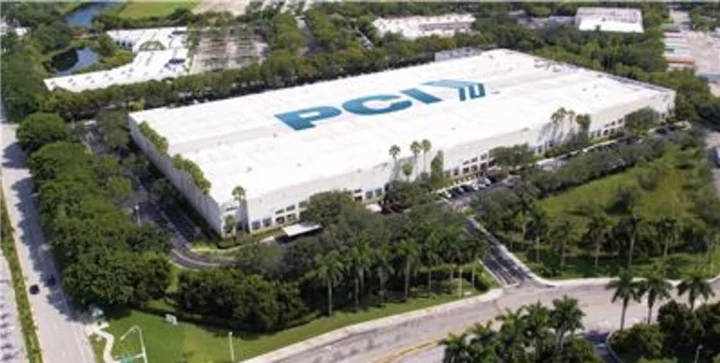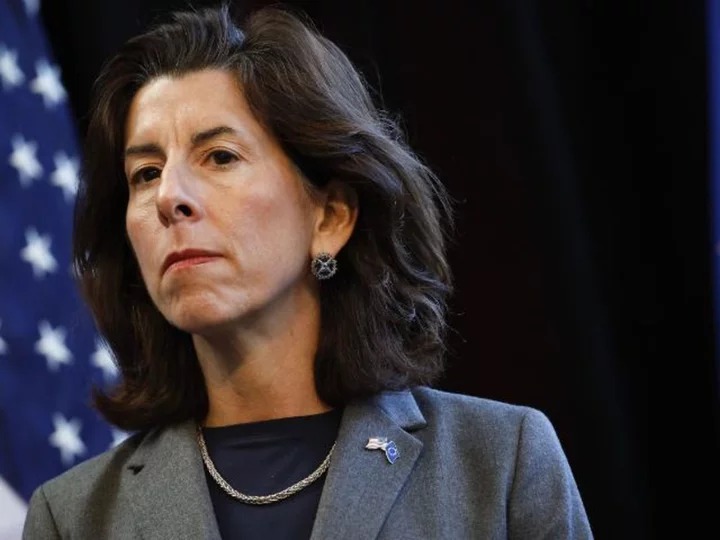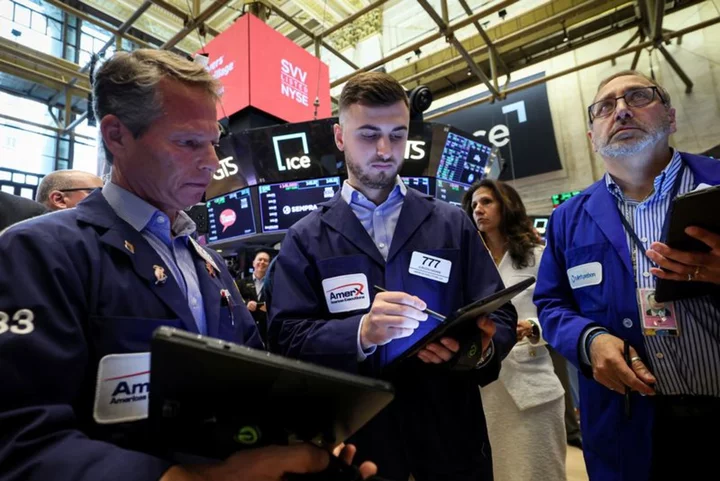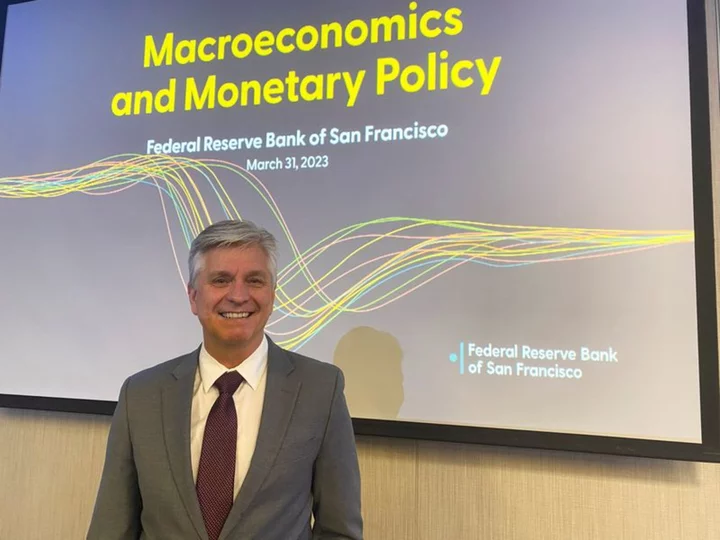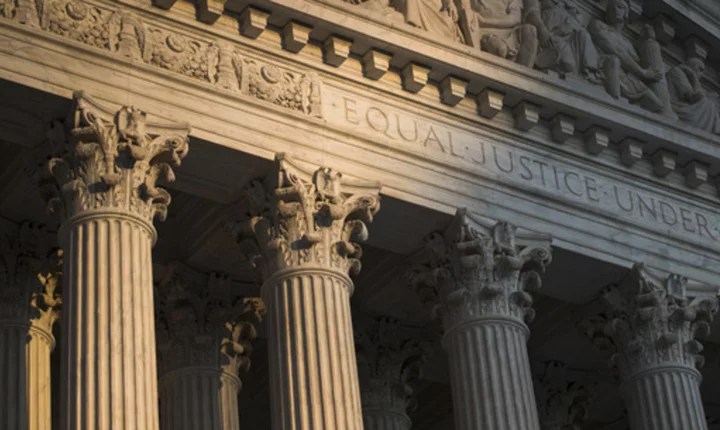WASHINGTON (AP) — A spike in gas prices pushed up inflation in August, yet most other costs rose at a more modest pace, evidence that consumer price increases overall are still cooling.
In a set of conflicting data on Wednesday, the Labor Department said the consumer price index rose 3.7% in August from a year ago, up from a 3.2% annual pace in July. Yet excluding the volatile food and energy categories, so-called core prices rose 4.3%, down from 4.7% in July and the smallest increase in nearly two years. That remains far from the Federal Reserve’s 2% target.
Despite the seemingly divergent figures, the decline in the core measure could add to optimism that inflation is coming under control. The Federal Reserve closely tracks core prices because they are seen as a better indicator of future inflation trends. Wednesday's figures also make it more likely the Fed will skip an interest rate hike at its meeting next week. While more expensive gas could elevate inflation this month as well, most economists forecast that inflation will slowly decline through the end of the year.
On a monthly basis, consumer prices jumped 0.6% in August, the biggest increase in more than a year. Gas prices spiked nearly 11% in August, though they have since levelled off: According to AAA, the average nationwide price at the pump was $3.84 on Tuesday, little changed from a month ago.
Excluding food and energy, core prices increased just 0.3% in August from July.
THIS IS A BREAKING NEWS UPDATE. AP’s earlier story follows below.
WASHINGTON (AP) — A sharp increase in gas prices likely pushed inflation higher in August compared with a year ago, yet a measure excluding energy and food costs is expected to fall for the fifth straight month, suggesting that the Federal Reserve's interest rate hikes are still bringing down prices for many goods and services.
The consumer price index is projected to have increased 3.6% last month from a year earlier, according to economists' forecasts compiled by data provider FactSet. The increase would be up from 3.2% in July, though still far below the peak of 9.1% in June 2022.
Yet core prices, which exclude food and energy and are monitored closely by the Federal Reserve, are likely to cool to 4.3% in August from a year ago, down from a 4.7% annual pace in July. The Fed follows core prices because they can provide a better read on where inflation is headed.
If the forecasts are accurate, such data will likely fuel optimism that inflation is coming under control, despite the rise in gas prices, and raise the odds the Fed will skip an interest rate hike at its meeting next week. While more expensive gas could elevate inflation this month as well, most economists forecast that inflation will decline through the end of the year as the cost of new and used cars, rents, and furniture decline.
“The longer-run trend is coming down,” said Alan Detmeister, an economist at UBS and former staff economist at the Fed. “There is month-to-month noise ... But we're on the right track."
Cooling inflation has also bolstered hopes that the economy could actually experience a rare “soft landing,” in which growth and hiring slow enough to bring down price growth but not so much as to result in a deep recession.
On a monthly basis, consumer prices likely jumped 0.6% in August, the biggest increase in more than a year. Gas prices spiked about 11% in August, economists estimate, though they have since levelled off: According to AAA, the average nationwide price at the pump was $3.84 on Tuesday, little changed from a month ago.
Economists forecast that air fares likely also rose in August from July. But they expect used cars, which soared in price during the pandemic and its aftermath, will fall as much as 3% in August from July, and new cars could also decline or at least stay unchanged. Apartment rental costs are expected to keep rising at about a 0.4% monthly pace, but that is half the rate of a year ago and could fall further later this year.
Grocery prices are increasing more slowly after skyrocketing in the wake of supply disruptions brought on by Russia's invasion of Ukraine last year. The increase has strained many households' budgets. Even with more modest increases each month, grocery costs are still 3.6% higher than a year ago.
Federal Reserve officials are becoming more open to the idea that inflation is coming under control, though chair Jerome Powell said last month it was still “too high.”
But in his high-profile speech at Jackson Hole, Powell said that the Fed would proceed “carefully” with any further rate hikes, which many economists saw as an opening for the Fed to skip a rate increase at its September 19-20 meeting.
The Fed has lifted its benchmark interest rate 11 times in the past 12 meetings to about 5.4%, the highest level in 22 years. It increased the rate a quarter-point in July after leaving it unchanged in June.
Lorie Logan, president of the Federal Reserve's Dallas branch, said last week that “another skip could be appropriate” at its next meeting, “but skipping does not imply stopping.”
Investors see only a 7% chance of a rate hike next week, according to CME's FedWatch. But they have priced in a 38% change for an increase at the Fed's subsequent meeting in November.
The European Central Bank is also contemplating lifting its key interest rate at its next meeting Thursday, though officials could choose to also skip an increase. The European economy is nearing recession as it struggles with high inflation and rising borrowing costs.
The 20 countries that use the euro currency are expected to grow just 0.8% this year, according to a gloomy forecast issued Monday by the European Commission, the European Union's executive arm. Germany's economy, the EU's largest, is projected to shrink 0.4%. Inflation in the EU is higher than in the U.S. — it was 5.3% in July — though that is half of the 10.6% peak reached in October.


